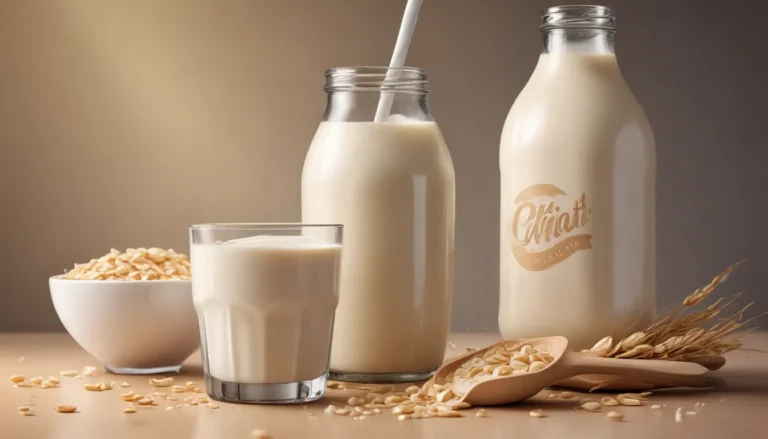The pictures in our articles might not always show exactly what the text is talking about. We use these images to make the article more interesting and eye-catching. They are there to add to the text, but not to replace it or show every detail.
Are you a fan of fish? If so, you're probably familiar with the numerous health benefits fish can offer. Bass, a popular game fish, is not only delicious but also a nutritional powerhouse. Packed with protein, omega-3 fatty acids, vitamins, and minerals, bass is like a superhero for your body! Whether you're a fishing enthusiast or simply enjoy the taste of bass, it's essential to understand the incredible nutritional value this versatile fish provides. In this article, we will delve into 11 key bass nutrition facts that will leave you amazed at the hidden health benefits beneath its sleek appearance and flavorful flesh.
The Marvels of Bass Nutrition:
- Bass is a super nutritious fish that helps build muscles, supports heart and brain health, and boosts the immune system. It's like a tasty health potion in fish form!
- With its high protein, omega-3 fatty acids, vitamins, and minerals, bass is a delicious and healthy choice for a balanced diet.
Key Nutrient Highlights of Bass:
1. High in Protein
Bass is an excellent source of lean protein, with a 3-ounce serving providing around 21 grams of protein. Protein is essential for various bodily functions, making bass a great option for building and repairing muscles.
2. Rich in Omega-3 Fatty Acids
Omega-3 fatty acids found in bass are crucial for heart health. These healthy fats help reduce inflammation, lower blood pressure, and improve overall cardiovascular function.
3. Provides Essential Vitamins
Bass contains essential vitamins like vitamin D, vitamin B6, and vitamin B. Vitamin D plays a vital role in bone health and immune system support, while B vitamins contribute to energy production and brain function.
4. Contains Minerals
Rich in minerals like potassium, magnesium, and selenium, bass offers various health benefits. Potassium helps maintain healthy blood pressure levels, magnesium supports muscle and nerve function, and selenium acts as an antioxidant protecting the body from cellular damage.
5. Low in Calories
Bass is a low-calorie fish, with only around 120-150 calories per 3-ounce serving. This makes it an ideal choice for individuals looking to maintain or lose weight while enjoying a delicious and nutritious meal.
6. Supports Brain Health
The omega-3 fatty acids in bass play a significant role in brain health and cognitive function. Regular consumption of bass can help improve memory, concentration, and overall brain performance.
7. Boosts Heart Health
The combination of omega-3 fatty acids and low levels of saturated fat in bass make it beneficial for heart health. Including bass in your diet may help reduce the risk of heart disease by lowering cholesterol levels and decreasing inflammation.
8. Improves Eye Health
Bass is a good source of antioxidants like lutein and zeaxanthin, essential for maintaining healthy eyes and preventing age-related macular degeneration. These antioxidants protect the eyes from UV rays and oxidative stress.
9. Aids in Energy Production
B vitamins present in bass assist in converting food into energy, playing a crucial role in the metabolism of carbohydrates, proteins, and fats. This provides the body with the energy it needs to function optimally.
10. Supports Strong Bones
Abundant in vitamin D, bass is essential for calcium absorption and bone health. Adequate intake of vitamin D helps prevent conditions like osteoporosis, ensuring strong and healthy bones.
11. Enhances Immune Function
The combination of vitamins, minerals, and antioxidants in bass helps boost the immune system. Regular consumption of bass strengthens your body's natural defense mechanism, keeping you healthy and protected from illnesses.
In conclusion, bass is a delicious and highly nutritious fish that offers numerous health benefits. Including bass in your diet can provide you with essential nutrients like protein, omega-3 fatty acids, vitamins, minerals, and antioxidants. With its low-calorie content and high nutritional value, bass is an excellent addition to a well-rounded and healthy meal. So why not incorporate bass into your next culinary adventure?
FAQs:
- Is bass a good source of protein?
-
Yes, bass is an excellent source of protein, providing approximately 19 grams per 3-ounce serving, essential for muscle growth and repair.
-
Can bass help with weight loss?
-
Yes, bass is low in calories and fat, making it a filling and nutritious option for those looking to lose weight.
-
Does bass contain omega-3 fatty acids?
-
Yes, bass is a good source of omega-3 fatty acids, beneficial for heart health and reducing inflammation.
-
Can bass be consumed by individuals with dietary restrictions?
-
Yes, bass can be enjoyed by individuals with dietary restrictions, but it's best to consult with a healthcare professional if you have specific concerns.
-
What are some delicious ways to prepare bass?
- Bass can be grilled, baked, pan-seared, or used in fish tacos or sushi rolls, with different seasoning and marinades adding extra flavor to the dish.
Bass nutrition facts reveal the impressive health benefits of this fish, supporting brain, heart, eye health and providing essential nutrients for a healthy body. With its low-calorie content, bass is an excellent choice for maintaining weight and overall well-being. Embrace the goodness of bass in your diet and enjoy a flavorful and nutritious meal that nourishes your body inside and out.






